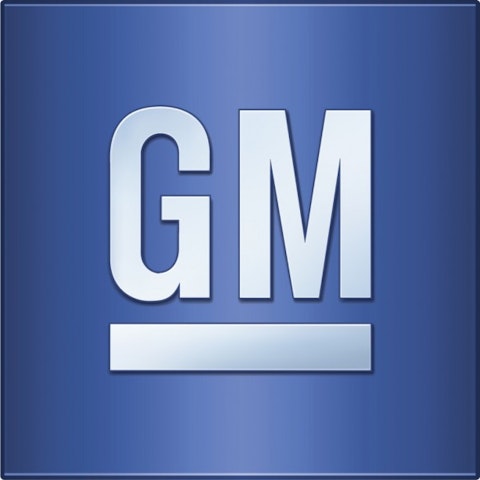At General Motors Company (NYSE:GM)‘ annual shareholders’ meeting on Thursday, CEO Dan Akerson announced a new program: Buyers of new 2014 Chevrolet, Buick, and GMC vehicles will receive free routine maintenance for two years, or 24,000 miles.
The new program includes up to four visits a year and covers regular oil and filter changes and free tire rotations.
Dealers will also, as GM said in a statement, “conduct a 27-point vehicle inspection based on what’s called for in the vehicle owner’s manual maintenance schedule and oil life monitoring system.”
Luxury-car brands (including GM’s Cadillac) have offered these sorts of programs for a while. But this is something new for the mass market, at least for GM.
Why would General Motors Company (NYSE:GM) do this?
A surprising move that makes a lot of sense
There are several good reasons for GM to launch a program like this, all of which suggest that GM’s new management is trying to address problems that GM’s old management had kind of ignored for a long time.
First and foremost, it’s about improving owner loyalty – specifically, about increasing GM’s not-so-great loyalty ratings. As Akerson said while announcing the program, “We know that customers who service their vehicles at our dealerships are much more likely to purchase another General Motors Company (NYSE:GM) product down the road.”
GM has said in the past that every point added to its customer loyalty rating is worth about $700 million in added revenue. With Akerson intently focused on increasing GM’s profitability, such things matter a lot.
But it’s not just about encouraging GM’s customers to become repeat customers. It’s also about attracting more customers to GM in the first place. Kelley Blue Book analyst Alec Gutierrez noted in a statement that this new program might be enough to sway some buyers who were on the fence about buying a GM product.
That makes this a particularly timely announcement. GM is at the early stages of a massive overhaul of its U.S. product line that will see 20 new or revised products hit dealers by the end of next year. Those products are likely to be huge improvements over GM’s older models. Bt getting potential customers to check them out – and to buy – could prove to be a challenge, as rival Ford Motor Company (NYSE:F) discovered a few years back when its own product-improvement push began. This new program may help.
A more subtle, but important, benefit from this new program
Another analyst had a somewhat different take on General Motors Company (NYSE:GM)’s new program. Eric Lyman is vice president of residual values for ALG, a company that sets residual values for automaker’s new-car leasing programs. A car’s residual value is an estimate of what it’ll be worth when the lease is up – critical for pricing new-car lease programs, which can be intensely competitive. Obviously, higher values are better.
Lyman suggested that the free maintenance program could be seen as an alternative to incentives, the cash-back or cheap-financing deals that automakers offer to spur sales, and could be related to GM’s desire to increase its residual values. As he said in a statement, “While cash incentives have a direct, negative impact on the future resale value of a vehicle, free maintenance programs can have a positive halo effect on brand value.”
I noted back in April that General Motors Company (NYSE:GM)’s leadership was working on ways to improve the company’s residual values, which had improved from “terrible” to “respectable” but still fell short of the industry’s average, not to mention those of mass-market leader Honda Motor Co Ltd (NYSE:HMC) . This new program might help.
Last but not least, the dealers will love this
Of course, GM’s dealers will absolutely love this program, and that was surely a key consideration for GM’s leadership. More maintenance business and more repeat customers are exactly what any dealer wants – but now, GM’s dealers have to step up and deliver the kind of positive experience that will generate repeat customers.
The article Why Is GM Offering Free Maintenance? originally appeared on Fool.com.
Fool contributor John Rosevear owns shares of General Motors Company (NYSE:GM). Follow him on Twitter at @jrosevear. The Motley Fool recommends General Motors.
Copyright © 1995 – 2013 The Motley Fool, LLC. All rights reserved. The Motley Fool has a disclosure policy.



